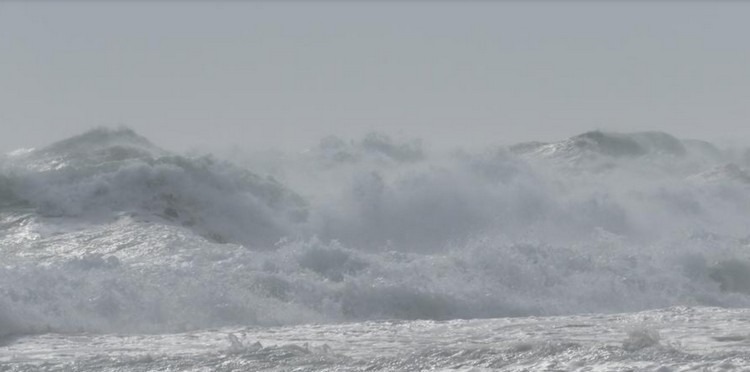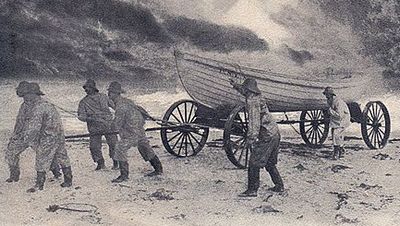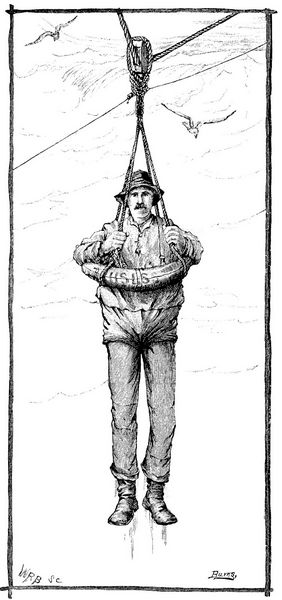A Wash Ashore
Chapter 1
Author’s Note: People who were born on and continue to live on Cape Cod call a person who moved there from elsewhere “A Wash Ashore”.

I stood at my bedroom window, looking out towards the sea. The night was clear, and a nearly full moon shone down on the ocean as thin clouds scudded by. The wind was gale force. That was quite common for Cape Cod. It wasn’t raining, but the wind whipped up the water and blew it towards shore, where some of it slammed like rain on my window. It was shaping up to be a real Nor’easter.
I’d been awakened by the whistling wind, and I’d gone to the window to see how high the waves were. As I watched, I made out through the spray a schooner struggling southward. Schooners with two, three, or even four masts were quite common along the shores of the Cape in the 1880s. They transported everything from ice to granite.
Just as the ship made its way directly opposite our house, it stopped suddenly, apparently running aground on the shoals. I waited and watched, hoping the crew could free it, but knowing in my heart that probably wasn’t going to happen.
A Coston flare shot out from the ship towards the shore. I watched it as it lit the sky before dropping into the sea.
Soon, the men at the lifesaving station up the beach shot a flare in acknowledgement.

A Lifesaving Boat
I continued to watch as the rescue team arrived, pushing and pulling a contraption with wheels large enough that it wouldn't get stuck in the sand. On it was a boat especially built for ocean rescue work. The men prepared to launch the surfboat into the waves which were some twenty feet high and made a pounding sound as they slammed onto the beach.
I knew some of the men who were neighbors, and I knew that what they were about to do was very dangerous. The motto of the lifesaving service was, ‘You have to go out, but you don’t have to come back’.
Waiting until a wave had struck the beach, the men rushed the boat out into the water and scrambled aboard. They didn’t even have time to get their oars in the water before another wave threw the bow of the boat into the air. Falling into the sea, the men were able to scramble back to shore, where they prepared to try again.
I lost track of the number of times the men tried to launch the boat. The attempts seemed to take hours, but I believe what I was witnessing was only taking a matter of minutes. I also knew that the ship stuck on the shoals was being pounded by the huge waves and wind. It was only a question of time before the ship broke up and all the crew was lost.
As I watched, I saw some of the men on shore preparing the Lyle gun. I had seen demonstrations of how the gun worked, how it shot a line to the ship. That was caught by someone on the ship who pulled it on board. The line was attached to heavier lines which in turn was pulled aboard and run through a pulley on a mast. Then the line was used to pull in the breeches buoy. The cannon fired a line towards the ship, and fortunately one of the crew was able to grab it, haul in the heavier lines attached to it, and secure it to the mainmast.

A Breeches Buoy
A breeches buoy is a life-saving ring attached to a harness which is in turn attached to a line. Suspended from the life-saving ring is a pair of large canvas breeches or shorts. The person to be rescued climbs into the ring and the breeches. He holds onto the harness and is pulled toward shore by the rescue crew.
I could just make out someone climb into the contraption and start to ride towards shore.
When at last the buoy arrived at the beach, the rescued man climbed out.
I continued to watch as the breeches buoy was hauled again to the ship and another person climbed in.
Just as the buoy began to leave the schooner, I watched with horror as an enormous wave slammed the ship.
There was silence among the men on shore. They hauled in the man who was already in the breeches buoy, but the line on the ship had dropped below the water, and the man they pulled in was dragged through the sea for most of his journey ashore. When he arrived, he was dead. The rescue crew watched and waited, hoping desperately that some of the crew could make it to the beach, but the waves slammed relentlessly on the shore and no sign of life appeared. Everyone on the ship must have been washed overboard.
++++++++
An hour later, the men packed up their gear and headed back to the station, carrying the dead man. One man put his arm around the rescued crewman’s shoulder and headed towards my house.
There was a knock. I heard the door open and my parents’ voices, and I wondered if I should go downstairs or stay where I was.
A moment later my father’s call made the decision for me. I trotted down the steep stairs into the kitchen, where a boy stood shivering.
He was soaked and cold despite the heat pouring from the wood stove. Mother told me to bring down a nightgown and robe while she heated water on the stove for the bathtub.
Returning with a flannel gown and a robe, I handed them to Mother, who told the boy to get out of his wet clothes.
The boy took off his jacket and then his shirt. He hesitated before Mother said, “Go ahead and strip. I’m sure we’ve all seen naked boys before.”
Reluctantly, the boy undid his britches and let them drop before removing his shorts and standing bare and shivering in the kitchen with his arms clutched before him.
As soon as the water in the tub was warm enough, Mother helped him into it. He sat while she began pouring the warm water over his upper body.
I couldn’t help but gaze at the boy. He was perhaps two years younger than me. He had black curly hair and a cupid’s-bow mouth. His body was well developed for his age. I thought he was beautiful, but I quickly banished that thought from my mind. Boys are not beautiful, I reminded myself.
Turning to me, Mother broke into my reverie asking, “Caleb, can you make room in your bed for him tonight? I think he’s exhausted as well as very upset.”
I assured Mother that the boy and I could manage.
Speaking to the boy in the tub, she asked, “What’s your name?”
J…J…Josiah,” he stammered.
“Why were you on the ship?” she asked him.
“M…m…my father’s the captain. I’ve been sailing with him for years now because my mother’s dead and I’ve nobody else to stay with.”
So now, I thought, he’s an orphan. What will become of him?
In time, Josiah stopped shivering. When Mother thought he had benefitted all he could from the bath and the water was beginning to cool, she helped him out of the tub and handed him a towel.
Standing before the stove, he dried himself and then put on the nightgown and robe she handed him. They were much too big for him, but he didn’t seem to notice.
“Now you boys get up to bed and try to get some rest,” she said.
I headed towards the stairs and Josiah followed.
In my room, we climbed into bed. We could only fit if we were both on our sides.
We lay facing each other, and instinctively, I put my arm around his shoulder. He began to cry again, shuddering sobs which seemed to come from deep within his body.
Not able to think of anything else to do, I waited, rubbing his back a little and talking soothingly. I have no idea what I said, but eventually his sobs slowed and stopped.
When he’d cried himself out, I asked gently, “What’s your last name, Josiah?”
“Parker,” the boy replied very quietly.
“I’m Caleb Tyler.”
“What’s going to happen to me?” asked Josiah.
“Well, for right now you can stay here. We’ll have to see what happens, but it’s nothing we can solve tonight. Do you think you can sleep?”
“No,” Josiah said.
“All right. Well, just lie here and get warm and try not to worry.”
A shudder came from Josiah, but then he lay still, and soon I realized that he was asleep. He must have been exhausted.
++++++++
I awoke early in the morning as the room was just beginning to grow light. Josiah was not in the bed. I looked over and saw him sitting at the window, gazing out towards the sea.
“Don’t torture yourself, Josiah,” I said quietly.
When he turned to me, his face was blank.
“Will the men wash ashore?” he asked.
“Perhaps one or two will, but in wrecks like this, most people don’t.”
He nodded and looked back at the sea.
“Do you want to talk about it?”
He shook his head and continued to sit gazing out at the still wild waves that were pounding the shore.
I made sure he had water, and when he wouldn’t go to the kitchen to eat, I carried food up to him. He didn’t eat anything.
He stayed at the window in my room the entire day, and that night, as we lay in bed, I again suggested he talk about what had happened. He was silent for some time, but at last he began to speak, very slowly at first but more rapidly as he got into his story.
“I was standing at the rail with my father. We were making our way from Camden, Maine to New York City with a cargo of lumber.
“Father was on constant watch, as the shoals of the Cape are famous and dangerous. I guess he believed he was far enough east of them. Nevertheless, he watched closely and had a crewman taking frequent depth readings with a line and weight.
“About midnight, the ship suddenly lurched to a grinding stop. The halt was so sudden that the foremast split and toppled to the port side, covering part of the deck in snarled lines and canvas.
“At once, Father sent our first mate to the emergency case for flares.
“I guess I didn’t really understand what had happened, but I did understand that the ship had run aground and everyone on it was in danger.
“Taking one of the flares, Father shot it into the air towards the beach. Then we all waited, praying. At last, an answering flare rose above the beach, so we knew that the nearest lifesaving station saw that we were in trouble and would try to help.
“The wait seemed endless. Father explained to me that the lifesaving boat would need to be brought from the station to the shore opposite the ship, and all the time the waves were crashing into it.
“At long last, we saw people with torches moving about on shore and, by the moonlight, we could just make out the surfboat which we prayed would rescue all eight of us.
“The wind was whipping from the northeast towards the shore, and I could make out the huge waves as they broke on the beach.
“‘What’s happening, Father?’ I asked.
“‘Well, they’re going to try to launch the surfboat and row out to us,’ he answered.
“‘What if they can’t?’
“‘I don’t know,’ he replied, ‘but it doesn’t look good.’
“For the first time, I was really afraid. I’m twelve. I had sailed with Father for four years and there had never been an accident. I wondered if Father was saying that we might die. I began to think about being cast into the ocean and swallowing sea water as I tried to struggle towards shore.
“Standing on the deck, I started to shiver. The wind wasn’t cold enough to get through my heavy jacket, but I shivered anyway. I guess I was really scared.
“We watched as the men on shore tried to launch the lifeboat. About ten feet from shore, a huge wave upended it and threw it back towards land. Stubbornly, the men on shore tried again. And failed again. Three more times they tried to launch the boat through the waves, and three more times they failed.
“They pulled the boat back on shore, above the high-water mark and began to ready a small cannon pointed at the ship.
“‘Are they going to shoot us?’ I asked.
“‘No,’ Father said, ‘that’s a Lyle gun. They’ll try to shoot a line from it to the ship.’
“We could barely hear the boom of the gun. Seconds after it was fired a line came hurtling towards the ship. One of the crewmen grabbed it and hauled it in. It was attached to two much heavier lines, one of which was attached to a pulley. Crewmen carried them up into the rigging and attached the pulley securely. The other line ran through the pulley and back to the men on land.
“When they were ready, the crewmen called down for the first person to climb up. Father pointed to one of the crew, but the man pointed to me. ‘He should be first, sir,’ he shouted over the gale. ‘He’s the youngest and has the most to lose.’
“Father looked at the others, who nodded. Then he took me to the main mast, and I climbed to where the men were waiting.
“Two crewmen held the buoy and helped me climb in. When I was settled, the apparatus began to carry me towards shore. I swayed back and forth as I moved forward until at last I reached shore and men helped me out of the buoy and onto the sand.
“I just stood, watching, and suddenly a huge wave washed over the ship. That was the last I saw of the men or Father.”
By then the tears were again coursing down his cheeks. I held him as tightly as I could and just rocked him back and forth.
After a few minutes, he said angrily, “I wish I hadn’t been rescued. I wish I could have died with Father. What do I have to live for?”
I didn’t know how to answer that. I just held him. When his tears stopped, I warmed him with my body until he fell asleep.